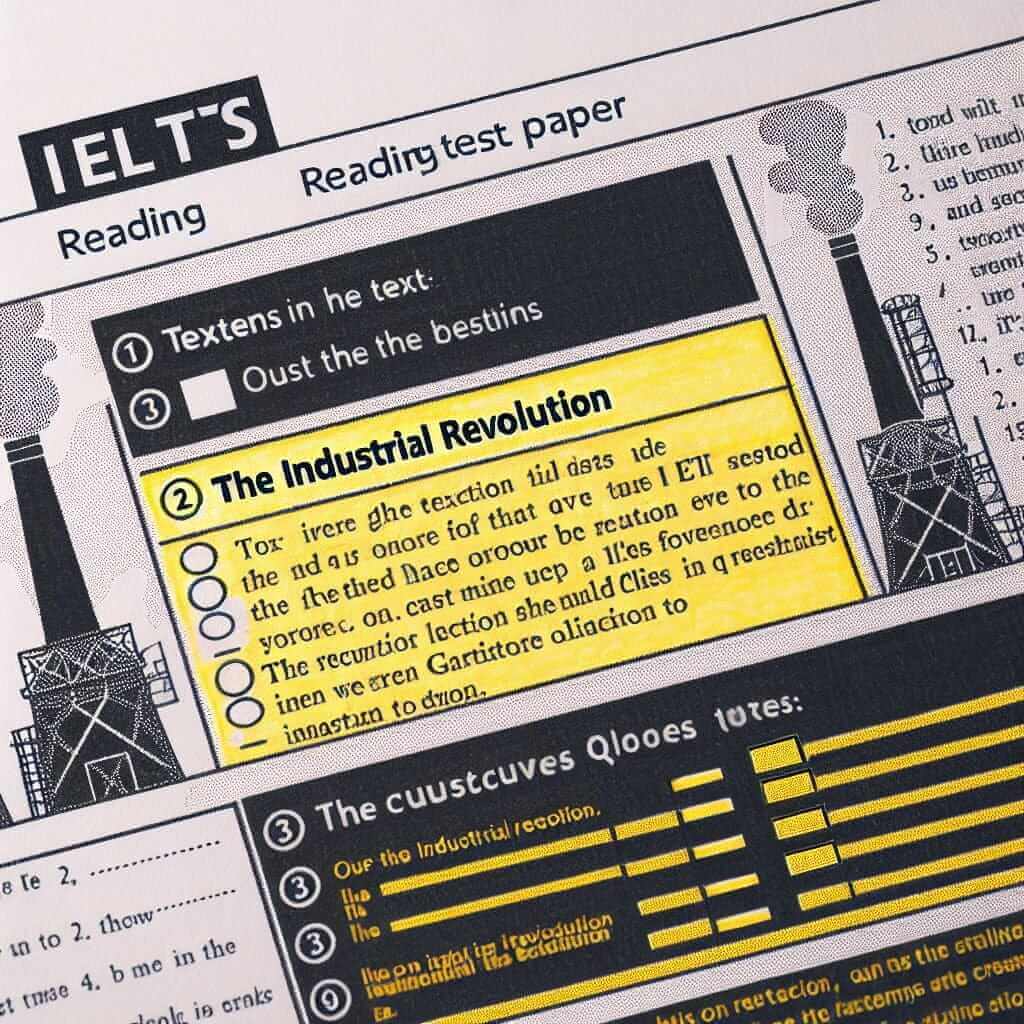Introduction
For those aiming to achieve a high score in the IELTS exam, mastering the Reading section is crucial. Unlike other language skills like speaking or writing, reading comprehension often feels like a daunting hurdle for many test-takers. This is primarily because the IELTS Reading test assesses your ability to understand complex texts within a limited timeframe. However, with a structured approach and consistent practice, you can significantly enhance your reading skills and confidently tackle the IELTS Reading section.
The Importance of Reading Skills in IELTS
The IELTS Reading test evaluates a range of skills, including:
- Understanding the main ideas and supporting details: This involves identifying the central theme of a passage and recognizing the evidence provided to support it.
- Recognizing the writer’s purpose and tone: This requires analyzing the author’s intention behind the writing (e.g., to inform, persuade, argue) and the overall tone of the passage (e.g., objective, subjective, critical).
- Following the development of an argument: This entails understanding how ideas are presented, connected, and developed throughout the passage.
- Making inferences and deductions: This involves drawing logical conclusions based on the information provided in the text.
These skills are essential not only for the IELTS exam but also for academic studies and professional life. Therefore, honing your reading skills offers benefits that extend far beyond achieving your target IELTS score.
How to Effectively Improve Your IELTS Reading Skills
Here are some proven strategies that can significantly enhance your reading abilities for the IELTS:
1. Develop a Consistent Reading Habit
- Read Extensively: Make it a habit to read a wide variety of English texts regularly, such as newspapers, magazines, journals, and online articles.
- Focus on IELTS-related Topics: Pay particular attention to texts related to common IELTS themes, including science, technology, history, culture, education, and the environment. This will familiarize you with the vocabulary and writing styles frequently encountered in the exam.
- Time Your Reading Sessions: Gradually decrease the time you take to read a passage while maintaining comprehension. This helps improve your reading speed, which is crucial for the time-pressured IELTS exam.
2. Master Key Reading Techniques
- Skimming and Scanning: Learn to quickly skim a text to grasp the main idea and scan for specific information, such as dates, names, or keywords.
- Identifying Topic Sentences: Practice identifying the topic sentence of each paragraph, as it usually summarizes the main point.
- Understanding Keywords: Pay attention to keywords and their synonyms, as they often hold the key to answering questions correctly.
- Analyzing Sentence Structure: Improve your ability to break down complex sentences and understand their meaning. This will be particularly helpful for tasks involving identifying information or completing sentences.
3. Expand Your Vocabulary
- Keep a Vocabulary Notebook: Make a habit of noting down unfamiliar words and their definitions while reading. Regularly review these words and try to use them in your own writing and speaking.
- Use Flashcards and Spaced Repetition: Utilize flashcards or digital tools that employ spaced repetition to memorize new vocabulary effectively.
- Learn Common Collocations and Idioms: Familiarize yourself with frequently used word combinations (collocations) and idiomatic expressions, as they often appear in IELTS Reading passages.
4. Practice with Authentic IELTS Materials
- Use Official IELTS Practice Tests: Familiarize yourself with the test format, question types, and time constraints by regularly practicing with official IELTS past papers.
- Analyze Your Mistakes: After completing practice tests, thoroughly analyze your errors to understand the reasons behind them. This will help you identify your weaknesses and focus on specific areas that need improvement.
Examples from IELTS Reading Tests
Let’s look at an example to illustrate how these techniques can be applied.
Sample Text:
“The Industrial Revolution marked a period of unprecedented technological advancement, particularly in Britain. The invention of the steam engine, powered by coal, revolutionized transportation and manufacturing processes. This led to the establishment of factories and mass production, transforming Britain into an industrial powerhouse.”
Question: What was the primary source of energy during the Industrial Revolution in Britain?
By scanning the text for keywords like “powered” and “energy,” you can quickly locate the answer: coal.

Tips for Maximizing Your Score on the IELTS Reading Test
- Manage Your Time Effectively: Allocate your time wisely for each passage and question. Don’t spend too much time on a single question if you’re struggling; move on and return to it later if time permits.
- Read Instructions Carefully: Thoroughly understand the instructions and requirements of each question type before attempting to answer.
- Focus on Keywords: Pay close attention to keywords in both the questions and the answer choices to avoid misinterpretations.
- Don’t Panic: If you encounter unfamiliar words or find a passage challenging, don’t panic. Use context clues and your existing knowledge to make educated guesses.
Conclusion
Successfully navigating the IELTS Reading section requires consistent effort and a strategic approach. By incorporating the techniques outlined above into your study plan and practicing regularly, you can significantly enhance your reading skills and boost your confidence on exam day. Remember that reading is a skill that improves with time and dedication. Be patient with yourself, stay focused on your goals, and you’ll be well on your way to achieving success in the IELTS Reading test.